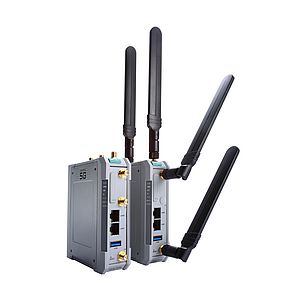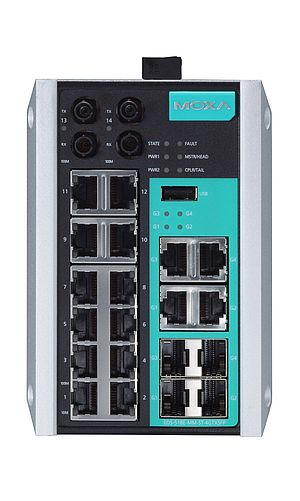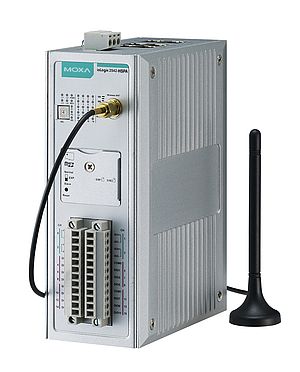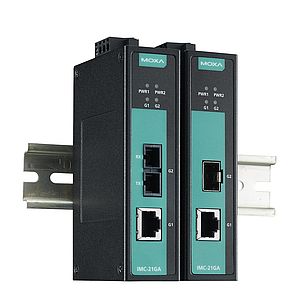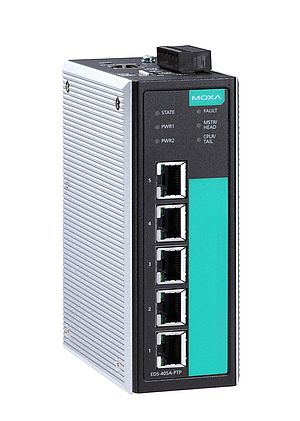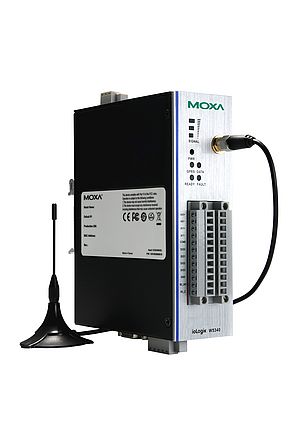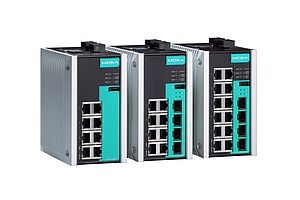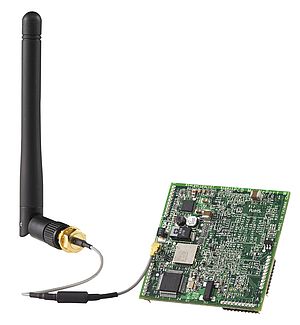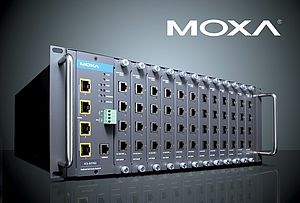Moxa announced its new MRX Series Layer 3 rackmount Ethernet switches that support 64 ports with up to 16 ports of 10GbE speed to accelerate data aggregation for industrial applications and help users build high-bandwidth network infrastructure to realize IT/OT convergence.
Ethernet Switches for high-bandwidth industrial networks
The rising number of connected devices and increasing adoption of data-intensive applications like video data transmission are boosting the requirement for high-bandwidth networks. Video surveillance and AI-oriented applications with ultra-high definition (UHD) videos are examples of these demands. Furthermore, the analytic needs for more intelligent applications for business innovation also make the MRX-Q4064/G4064 Series ideal Ethernet switches for handling high-bandwidth transmission requirements.
Redundant network paths
The MRX-Q4064/G4064 Series combines impressive switching performance with a sophisticated exterior and is the winner of the Red Dot Product Design 2024 award. The rackmount Ethernet switches offer industry-leading 16 and 8 10GbE ports, respectively, aggregating large-scale data transmissions. In addition, the port trunking features allow grouping up to eight 10GbE ports into a single 80 Gbps link to maximize transmission bandwidth. The MRX-Q4064/G4064 Series delivers both system and network reliability. Continuous system operation relies on stable operating temperatures and power supplies. Intelligent temperature control functions, 8 fan modules, and dual power supply modules ensure MRX-Q4064/G4064 Series uptime and stability. Moxa’s Turbo Ring and High-availability Static Trunk (HAST) technologies provide redundant network paths and connectivity to achieve high availability for large-scale network infrastructure.
The MRX-Q4064/G4064 Series was developed to simplify deployment and maintenance for engineers. The modular design of its Ethernet interfaces, power supplies, and fans tremendously increases deployment flexibility. The rackmount Ethernet switches have built-in LCD Modules (LCMs), allowing engineers to check device status and quickly troubleshoot. Hot-swappable modularity empowers module swaps without affecting operations.






